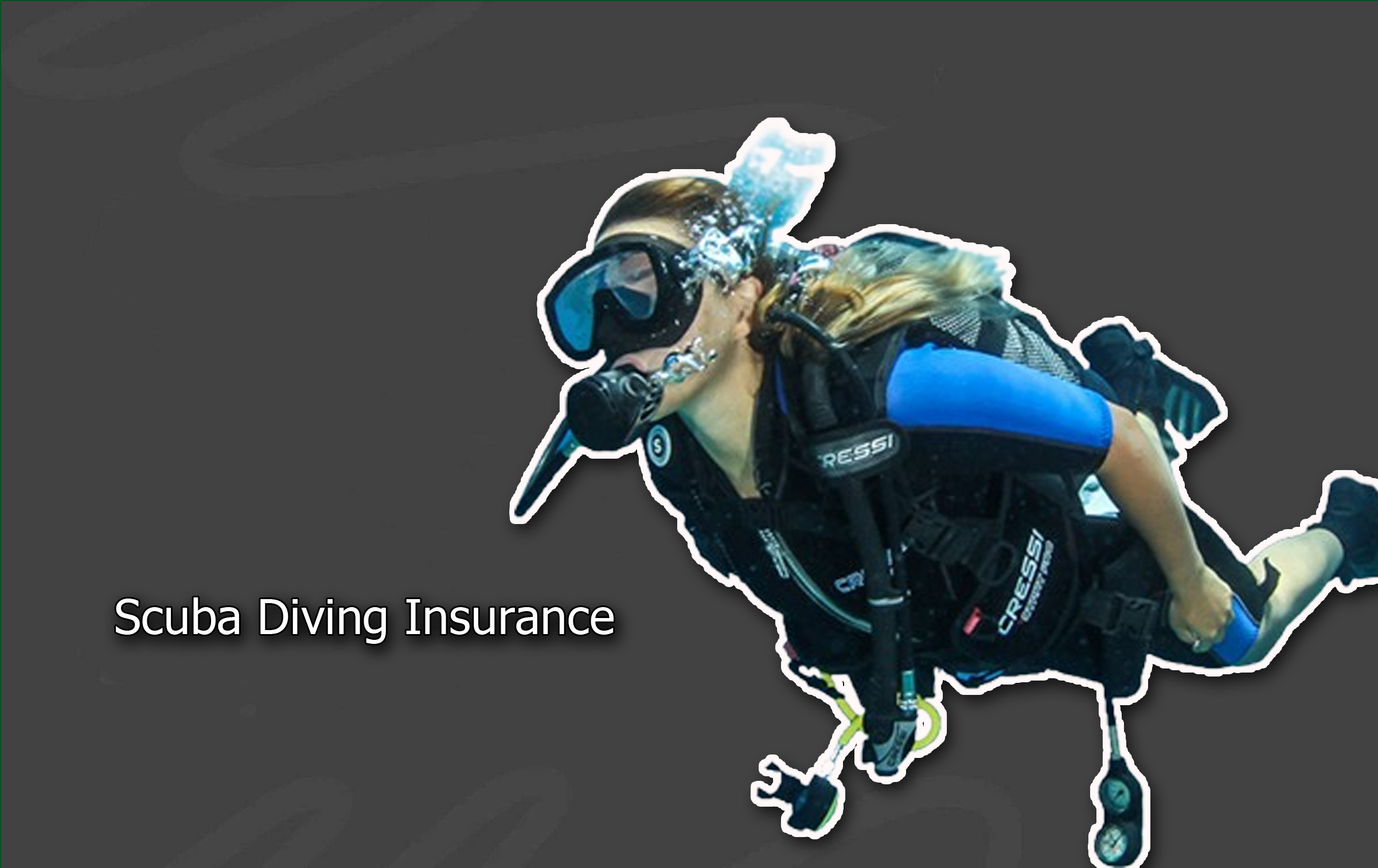
Scuba Diving Insurance – Planning a scuba diving adventure? Before you dive into the depths, have you considered how to protect yourself and your gear in case of unexpected mishaps?

Scuba diving offers incredible experiences, but it also comes with unique risks. From equipment damage to unexpected medical emergencies, having the right insurance ensures you’re covered no matter what happens underwater.
Scuba diving insurance is designed specifically for divers, providing protection for medical treatments, hyperbaric chamber costs, trip cancellations, and even lost or stolen equipment.
So, regardless of if you’re a beginner or an experienced diver, having the right coverage gives you peace of mind.
This insurance protects you from unexpected costs, including medical treatments, hyperbaric chamber expenses, trip cancellations, and lost or damaged equipment.
Also, by knowing your coverage options, you can dive confidently and fully enjoy your underwater adventures.
So, what does scuba diving insurance cover? Stick with us until the end of this blog post to find out.
Risks Involved in Scuba Diving
Scuba diving is an exciting and adventurous sport, but it comes with certain risks. Even under the guidance of trained professionals, divers may encounter unexpected situations that can lead to serious harm. Because of these dangers, many insurance companies classify this sport as an “extreme sport.”
Common Risks in Scuba Diving
Here are some examples of potential risks:
- Decompression sickness (DCS): Caused by ascending too quickly or spending too much time at depth.
- Ear and sinus barotrauma: Damage to ear or sinus tissues due to pressure changes.
- Pulmonary barotrauma: Lung injuries from over-expansion of air during ascent.
- Arterial gas embolism: A blockage in the bloodstream caused by bubbles.
- Nitrogen narcosis: Impaired judgment due to high nitrogen levels at depth.
- Equipment failure: Issues like malfunctioning regulators or faulty tanks.
- Poor visibility: Challenges in navigation and communication.
- Strong currents: Can sweep divers off course or make resurfacing difficult.
- Marine life hazards: Injuries from stings, bites, or accidental contact with dangerous species.
- Entrapment or getting lost: Divers can become trapped in wrecks or caves or lose their way.
- Hypothermia: Exposure to cold water for extended periods.
- Panic or anxiety: Stress underwater can escalate risks.
- Drowning: In extreme cases, this remains a serious risk.
- Surface intervals and rapid ascents: Insufficient time between dives or ascending too quickly can cause harm.
- Injuries during entry or exit: Mishaps while getting into or out of the water.
Given these risks, standard travel or health insurance usually does not cover accidents caused by this sport. This makes specialized scuba diving insurance an important consideration.
What Does It Cover?
Scuba diving insurance provides protection against a range of diving-related expenses. Common coverage includes:
- Medical expenses, including treatment for decompression sickness.
- Transportation costs from the dive site to a medical facility.
- Emergency evacuations and repatriations.
- Costs for lost or damaged diving equipment.
- Trip cancellations or interruptions.
- Compensation for loss of limbs or eyesight.
- Search and rescue operations.
Coverage options may vary depending on the policy and provider, so it’s important to review your policy carefully or contact your insurance company for clarification.
What Is Not Covered by Scuba Diving Insurance?
While this insurance offers valuable protection, there are certain exclusions. These may include:
- Injuries caused by reckless behavior or negligence.
- Diving without proper certification.
- Normal wear and tear of equipment.
- Medical issues unrelated to diving activities.
- Accidents involving alcohol or drug use.
- Pre-existing medical conditions.
- Diving in unapproved or unsafe locations.
Understanding these exclusions ensures you know the limits of your coverage and prevents surprises during claims.
Where to Purchase?
Several companies specialize in offering this insurance. Notable providers include Divers Alert Network (DAN) and World Nomads, which cater specifically to the needs of divers. These companies provide coverage for medical emergencies, equipment damage, evacuation, and more.
Traditional travel insurance providers may also offer scuba diving coverage as an add-on or rider. However, it’s essential to carefully review these policies to ensure they meet your diving needs.
To find the right policy, compare offers from multiple providers. This helps you weigh options, find suitable coverage, and stay within your budget.
Frequently Asked Questions
What Is Scuba Diving Insurance?
Scuba diving insurance is a specialized policy that covers risks associated with diving, such as medical emergencies, evacuation costs, and equipment loss.
Who Needs Scuba Diving Insurance?
Anyone participating in scuba diving, whether recreational or professional, should consider getting this coverage to stay protected.
How Much Does Scuba Diving Insurance Cost?
The cost varies depending on your experience, the coverage you choose, and the insurer. Premiums are calculated based on these and other factors.
Do I Need Scuba Diving Insurance If I Have Health Insurance?
Yes, because most health insurance plans do not cover dive-related injuries. Scuba diving insurance provides the additional protection you need.